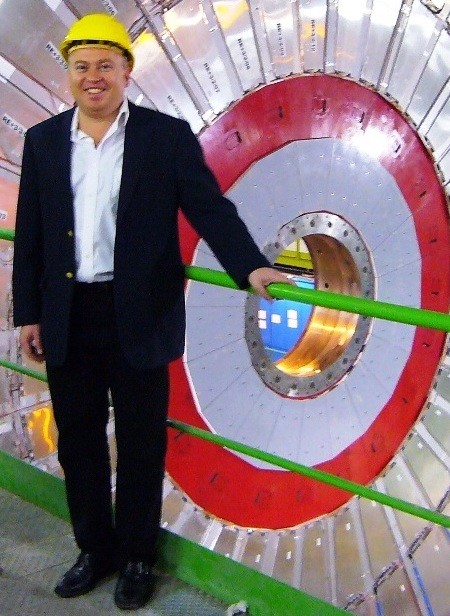23 June 2020
Meet the Editors | Interview with Prof. Dr. Greg Landsberg - Associate Editor of Universe
You are accessing a machine-readable page. In order to be human-readable, please install an RSS reader.
All articles published by MDPI are made immediately available worldwide under an open access license. No special permission is required to reuse all or part of the article published by MDPI, including figures and tables. For articles published under an open access Creative Common CC BY license, any part of the article may be reused without permission provided that the original article is clearly cited. For more information, please refer to https://www.mdpi.com/openaccess.
Feature papers represent the most advanced research with significant potential for high impact in the field. A Feature Paper should be a substantial original Article that involves several techniques or approaches, provides an outlook for future research directions and describes possible research applications.
Feature papers are submitted upon individual invitation or recommendation by the scientific editors and must receive positive feedback from the reviewers.
Editor’s Choice articles are based on recommendations by the scientific editors of MDPI journals from around the world. Editors select a small number of articles recently published in the journal that they believe will be particularly interesting to readers, or important in the respective research area. The aim is to provide a snapshot of some of the most exciting work published in the various research areas of the journal.
Original Submission Date Received: .

Prof. Dr. Greg Landsberg is a member of the team involved in the CMS experiment operating at the Large Hadron Collider at CERN (Geneva, Switzerland) and served as the Physics Coordinator of the CMS experiment at the time when Higgs boson was discovered. He is an author of a number of publications on collider phenomenology, including his pioneering work on mini black hole production at the LHC, which is among the topcite 1000+ articles.
Prof. Dr. Greg Landsberg conducts research in elementary particle physics, specifically, experimental investigation of the fundamental particles and fields of energy frontier accelerators. His main research activity is the search for new physics phenomena, including extra dimensions in space.
1. What attracted you to scientific editing for Universe?
I believe that getting involved in a publication process is an important way of ensuring high-quality and representative publications in one’s field. Over the years, I’ve authored many papers, both for myself and on behalf of the D0 and CMS Collaborations I’ve been a member of. I’ve also served on editorial boards of several journals, as well as been a referee for a number of them. Thus, I believe I understand the peer-review process quite well, both as a submitter and as a recipient of scientific papers. Consequently, I’m happy to offer my help to a relatively new journal in the field which targets a broad range of topics in the fundamental physics of the universe. I’m also particularly attracted by the Open Access policy of the journal, which I strongly support as the proper model for disseminating results of fundamental scientific research.
2. What are you hoping to achieve in your post as scientific editor?
My goal is to solicit new articles from leading experts in the field with the hope of increasing the interest in Universe journal within the scientific community and to improve the impact factor of the journal.
3. What kind of research do you look forward to publishing?
While my direct area of expertise is particle physics, in particular, the search for new physics phenomena, I’m interested in other fields also covered by the journal, and would like to see a balanced mix of topics covering major advancements in the studies of the fundamental properties of the universe.
4. Which research topics do you think are of particular interest to the research community at present?
I believe that LHC physics is still very interesting, specifically, the paradigm shifts in the way we do searches for new physics phenomena at the LHC and the impact that new precision measurements make on the overall picture of the universe. I also believe that the emerging field of gravitation wave detection is very interesting right now. Finally, I would like to see more articles on quantum sensing as a new experimental tool for various searches, and about novel analyses spanning more than one specific research area.
